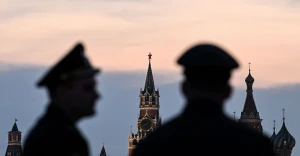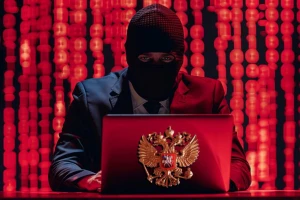
"Rome Statute has special procedure to deal with such cases": ICC Prosecutor Khan on Mongolia's refusal to arrest Putin
International Criminal Court (ICC) Prosecutor Kareem Khan commented on Mongolia's refusal to arrest Vladimir Putin and noted that there is an algorithm for responding to such case
He said this on September 10 during a visit to the Okhmatdyt children's hospital in Kyiv, Interfax reports.
‘There is a special procedure in the Rome Statute for dealing with such cases when the state did not cooperate with the court. Accordingly, judges control everything, they are aware of what happened. As a rule, in such cases, a general meeting of all ICC member states takes place and a decision is made,’ Khan commented.
He also noted that ‘compliance and cooperation in the ICC is not perfect’ and added that ‘there have been cases of such non-compliance in the past when states did not work with the court’.
At the same time, when asked by journalists whether it is possible to say that international law still works, Khan replied: ‘Do not be disappointed, we will see results, but it will not be easy. We are moving towards the real application of the law, and we are doing it together.’
Reaction of Prosecutor General Andriy Kostin
Andriy Kostin, who was also present during the visit to the Okhmatdyt hospital, said that Ukraine is currently working together with international partners to ensure that Mongolia, as a signatory to the Rome Statute of the ICC, feels the consequences of its refusal to arrest Vladimir Putin, Interfax reports.
According to him, this ‘should not be a tragedy’, because when one of the 125 countries that are signatories to the Rome Statute does not fulfil its obligations, it does not mean that all the others will not fulfil them either.
‘That's why we are working together with our partners to ensure that the country that did this feels the consequences,’ Kostin added.
On Putin's visit to Mongolia
On August 30, the Kremlin press service announced that Putin was to visit Mongolia on September 3 at the invitation of President Ukhnagiin Khurelsukh. Putin's trip to Mongolia was the dictator's first visit to a country that had ratified the Rome Statute. At the same time, his spokesman Dmitry Peskov said that the Kremlin was not afraid of the Russian dictator's arrest.
On the same day, the Ukrainian Foreign Ministry called on the Mongolian authorities to arrest Putin and hand him over to the International Criminal Court in The Hague.
The International Criminal Court said that the Mongolian authorities, in accordance with their obligations, should arrest Vladimir Putin if he visits the country.
On September 2, the Russian dictator nevertheless flew to Mongolia. Ukrainian Foreign Ministry spokesman Heorhiy Tykhyi said that Mongolia would face consequences for refusing to arrest Putin.
A spokesman for the Mongolian government later said that Mongolia did not arrest Putin because it was dependent on Russian energy imports.
- News














































